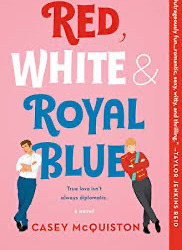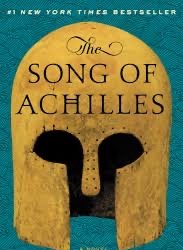Text
I heard Ethan Hawke talk about his interpretation of Hamlet, and something he said is that at heart, Hamlet is just a kid who wants to make his dad proud. He said that in the scene where his father's ghost appears, Hamlet is more surprised that his father chose him to appear to than that his father's ghost is there at all. He said that the way he sees it, Hamlet's father never had time for him in life, and that when Hamlet's dad gives him this task, it's Hamlet's last chance to make his father proud of him, and that's why he tries so, so very hard to do right by his father's memory.
And I LOVE that interpretation. It adds SO much to Hamlet's character. It's crazy to think that Hamlet is used to being ignored and left to his own devices by his family, so even from the very start when Gertrude and Claudio take an interest in him in the beginning of the play, he's surprised that they even noticed he was sulking.
Hamlet's parents don't know him. They never bothered to know him until they needed him. His misery puzzles and annoys Gertrude. She doesn't understand why he can't just be happy, and normal, but at the same time, she only makes time for him when she needs something from him, or when his actions threaten her own happiness.
And this adds crazy layers to Hamlet's relationship with Ophelia and Polonius. I think someone could easily argue that the fundamental difference between Hamlet and Leartes is a loving father; Hamlet sees the way Polonius cares for his children, and is offended by the false way Polonius tries to be kind to him. He wants that kind of father, but he knows he can't have it.
Hamlet sees right through everyone's ulterior motivations in the play because he's used to them ignoring him and he doesn't trust the sudden rush of attention towards him. He isn't surprised that people are lying to him; he knows they wouldn't be this concerned about him without an ulterior motive.
The only person he does truly trust is Horatio, who has always been his friend and confidant. Horatio is probably the only person in the play who doesn't change after Hamlet's father dies.
So basically, I think if you view Hamlet as a young man only barely entering adulthood, who spent his entire childhood feeling like he was letting his father down and only wanting to win his affection, it's a different, better play. Hamlet isn't a good person or a bad person, he's a kid at a crossroads, and he feels like the only way he can prove himself as a man and give his life meaning is by making his dad proud of him. When his father died, Hamlet likely thought he had lost the chance to ever bond with his dad, but now, he's gotten one last chance. So of COURSE he clings to it. Of course he descends into a terrified, paranoid spiral of wrongdoings and mistakes. He wants his dad back, and he wants his dad to love him. He got a task, and he's damn well going to do it, even if it kills him.
And the real tragedy in it all is that he fails. Hamlet's father begs Hamlet to remember him, and with Hamlet's death (and those of everyone around him) the memory of his father is lost, beyond the trivial knowledge that he existed. At the end of the play, there is no one left to remember who Hamlet senior truly was. In this way, Hamlet fails to carry out his father's last wishes, and dies knowing that everyone was right about him, he couldn't prove himself, he couldn't make his dad proud.
However, left behind is Horatio, the only person who ever cared about Hamlet beyond the scope of his father, and his depression, and his desperation for revenge. And in this way, Hamlet is remembered properly, even if his father is not.
564 notes
·
View notes
Text
Why we should stop comparing The Secret History and If We Were Villains
I've seen people putting the two books together as pillars of dark academia countless times, often trying to explain why their favourite one is the best and it is useless. The two books are incredibly different and you will inevitably be disappointed in one of the two if you read them with the same intentions.
The Secret History is a reversed mystery novel: from the very first lines, we know who died, how, and who killed him. The questions we are left with are "Why did they do that?", and "Will they get away with that?"
The book is fundamentally psychological, it's a character-driven book, which explains why such a long part is dedicated to establishing them, their relationships, while the actual murder is surprisingly short.
If We Were Villains, on the other hand, is a more traditional detective novel, though it doesn't totally fit the standard. It's a whodunit, and when we start the book, we know who got arrested but the mystery throughout the novel follows four questions: "Who died?", "Who did it?", "Why did they do it?" and "Why did Oliver get arrested?" We are trying to solve the murder at the same time as the detective.
It's a plot-driven novel, and although the characters are very important, they are all defined by one quality and one flaw during the first act (the characterisation in this book is amazing, I'm probably gonna make a post about it).
Obviously, if you read TSH and IWWV with the same expectations, one of them is going to bore you. However, if you consider their differences, they are both excellent books in their genre.
If they do have some common elements (a group of students that's almost sectarian, and murder), saying that IWWV plagiarized TSH sounds pretty ridiculous to me. IWWV is a love letter to Shakespeare and the madness in his characters, TSH is a critic of elitism in academic spaces.
And they both deserve praise, if only people would stop comparing them.
707 notes
·
View notes
Text
donna tart i will forever kiss the ground you walk on.
the way this woman writes has me astonished holy fuck.
#books#literature#charles macaulay#dark academia#donna tartt#camilla macaulay#the secret history#richard papen#francis abernathy#henry winter#tsh
67 notes
·
View notes
Text

I think my thirteen year old self would be proud of who I am.. a hotter & better version of her ofc but still the same
2K notes
·
View notes
Text
how do i let people know that fall is my favorite season, not in a pumpkin spice way but in a “the snow in the mountains was melting and bunny had been dead for several weeks” kind of way?
2K notes
·
View notes
Text
bitches be like “this is the best piece of literature i have ever read” and it’s either a book that took them six weeks to finish or a fanfic they read at 3 AM
24K notes
·
View notes
Text
my favorite genre of book is "inverted mystery in which a group of students in a pretentious-sounding college participate in murdering their friend. the narrator tells the story by recalling his past, and is supposedly mediocre in his major compared to his friends. also featuring queer/queer-coded main cast, the asshole friend™️, and a man named richard"
2K notes
·
View notes
Text
The Ultimate Dark Academia Book Recommendation Guide Ever
The title of this post is clickbait. I, unfortunately, have not read every book ever. Not all of these books are particularly “dark” either. However, these are my recommendations for your dark academia fix. The quality of each of these books varies. I have limited this list to books that are directly linked to the world of academia and/or which have a vaguely academic setting.
Dark Academia staples:
The Secret History by Donna Tartt
If We Were Villains by M.L. Rio
Dead Poets Society by Nancy H. Kleinbaum
Vita Nostra by Maryna Dyachenko
Dark academia litfic or contemporary:
Bunny by Mona Awad
The Idiot by Elif Batuman
These Violent Delights by Micah Nemerever
White Ivy by Susie Yang
The Cloisters by Katy Hays
Never Let Me Go by Kazuo Ishiguro
The Lake of Dead Languages by Carol Goodman
A Separate Peace by John Knowles
Black Chalk by Christopher J. Yates
Attribution by Linda Moore
Dark academia thrillers or horror:
In My Dreams I Hold a Knife by Ashley Winstead
The Maidens by Alex Michaelides
Ghosts of Harvard by Francesca Serritella
Catherine House by Elisabeth Thomas
Plain Bad Heroines by Emily M. Danforth
They Never Learn by Layne Fargo
The It Girl by Ruth Ware
Never Saw Me Coming by Vera Kurian
Dark academia fantasy/sci-fi:
Babel: An Arcane History by R.F. Kuang
The Atlas Six by Olivie Blake
Ninth House by Leigh Bardugo
A Lesson in Vengeance by Victoria Lee
The Starless Sea by Erin Morgenstern
Vicious by V.E. Schwab
A Discovery of Witches by Deborah Harkness
The Betrayals by Bridget Collins
Dark academia romance:
Gothikana by RuNyx
Alone With You in the Ether by Olivie Blake
Dark academia YA or MG:
Truly Devious by Maureen Johnson
A Deadly Education by Naomi Novik
Ace of Spades by Faridah Àbíké-Íyímídé
The Raven Boys by Maggie Stiefvater
Legendborn by Tracy Deonn
Crave by Tracy Wolff
Wilder Girls by Rory Power
The Harry Potter series by J.K. Rowling
Dark academia miscellaneous:
My Dark Vanessa by Kate Elizabeth Russell
Disorientation by Elaine Hsieh Chou
Alphabet of Thorn by Patricia A. McKillip
12K notes
·
View notes
Text
Ah yes my favorite kins: gay in denial, gay explorer and gay crow
a lil venn diagram for three of my favorite characters

243 notes
·
View notes
Text
Why read trc when you can get run over by a truck n get the same pain


Screaming throwing up etc
259 notes
·
View notes
Text
If god hates the gays... then why do we keep winning??????
So you're telling me in 2022 we will have:
RWRB movie
Good omens season 2
Ari and Dante movie
Heartstopper volume 4
Young royals season 2
Netflix adaptation of heartstopper
I kissed Shara wheeler by Casey McQuiston
Nico and Will solo novel ( co authored by a queer writer)
Husband material (a sequel to Boyfriend material)
When We already got 'Ari and Dante dive in the waters of the world' , young royals season 1 , 'one last stop' and Harley Quinn:eat bang and kill tour (with canon harley Quinn and poison ivy)comic in 2021
The gays are already winning. Just saying ~
1K notes
·
View notes
Text
The father, the son and the holy spirit
“i like to read about politics, philosophy and the classics”
the politics, the philosophy and the classics:



3K notes
·
View notes

